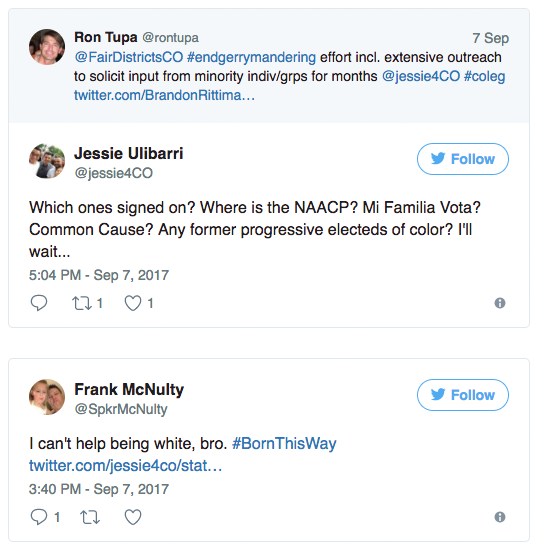
U.S. Senate
See Full Big Line
(D) J. Hickenlooper*
(R) Somebody
80%
20%

Governor
See Full Big Line
(D) Joe Neguse
(D) Phil Weiser
(D) Jena Griswold
60%
60%
40%↓

Att. General
See Full Big Line
(D) M. Dougherty
(D) Alexis King
(D) Brian Mason
40%
40%
30%

Sec. of State
See Full Big Line
(D) George Stern
(D) A. Gonzalez
(R) Sheri Davis
40%
40%
30%

State Treasurer
See Full Big Line
(D) Brianna Titone
(R) Kevin Grantham
(D) Jerry DiTullio
60%
30%
20%

CO-01 (Denver)
See Full Big Line
(D) Diana DeGette*
(R) Somebody
90%
2%

CO-02 (Boulder-ish)
See Full Big Line
(D) Joe Neguse*
(R) Somebody
90%
2%

CO-03 (West & Southern CO)
See Full Big Line
(R) Jeff Hurd*
(D) Somebody
80%
40%

CO-04 (Northeast-ish Colorado)
See Full Big Line
(R) Lauren Boebert*
(D) Somebody
90%
10%

CO-05 (Colorado Springs)
See Full Big Line
(R) Jeff Crank*
(D) Somebody
80%
20%

CO-06 (Aurora)
See Full Big Line
(D) Jason Crow*
(R) Somebody
90%
10%

CO-07 (Jefferson County)
See Full Big Line
(D) B. Pettersen*
(R) Somebody
90%
10%

CO-08 (Northern Colo.)
See Full Big Line
(R) Gabe Evans*
(D) Yadira Caraveo
(D) Joe Salazar
50%
40%
40%

State Senate Majority
See Full Big Line
DEMOCRATS
REPUBLICANS
80%
20%

State House Majority
See Full Big Line
DEMOCRATS
REPUBLICANS
95%
5%
 September 17, 2017 10:36 AM UTC
September 17, 2017 10:36 AM UTC 2 Comments
2 Comments Earlier this month, a
Earlier this month, a 
Dems should take heed of Republicans' actions: R's never stop attacking, they never stop trying to undo Progressive and Democratic gains, they never leave the rules in place when they can be re- or un- or newly rigged.
D's should NEVER assume any good will on the part of anyone who claims membership in the modern day Republican Party.
Fair Districts Colorado endorsements include:
13 Republicans
8 Democrats, including conservatives, and well-respected, but out-of-the-mainstream pols like former Governor Dick Lamm. Lamm was infamous for his "duty to die" speech, and also for his borderline-racist screeds about how multiculturalism and bilingual education would "destroy America". Bernie Buescher signed on, as did Cheri Jahn. Former Republican minority leader Larry Trujillo is also from Buescher and Lamm's era. Sal Pace and Mark Ferrandino are the only two progressive Democrats I see on the endorsements list. Ron Tupa is best known as the token Democrat pushing for more charter schools and stricter teacher evaluations.
3 Unaffiliated
Organizations:
League of Women Voters is the only true nonpartisan group signing on. Two lobbyists from Harber Brown Schreck etc etc are endorsers, as is The Centrist Project. The mission of the Centrist project looks admirable; they want to elect independents, and break partisan gridlock, enabling us to "get something done". I notice that they are very heavy on corporate board members and CEOs, so I would question how much they would represent the working people of their districts.
I don't see any endorsements from civil rights groups or voting rights groups; so the criticism that FDC is interested in suppressing minority voting rights, or at least haven't bothered to bring those voices to the table, is probably accurate. I see some Latino folks as endorsers; but Clarice Navarro-Ratzlaff, Trump surrogate, is not going to be interested in furthering the voices of Latino folks in Colorado.
So yes, I see a bias in this group. Sal Pace, Mark Ferrandino, and Ron Tupa might want to really investigate the long term goals of Fair Districts Colorado.